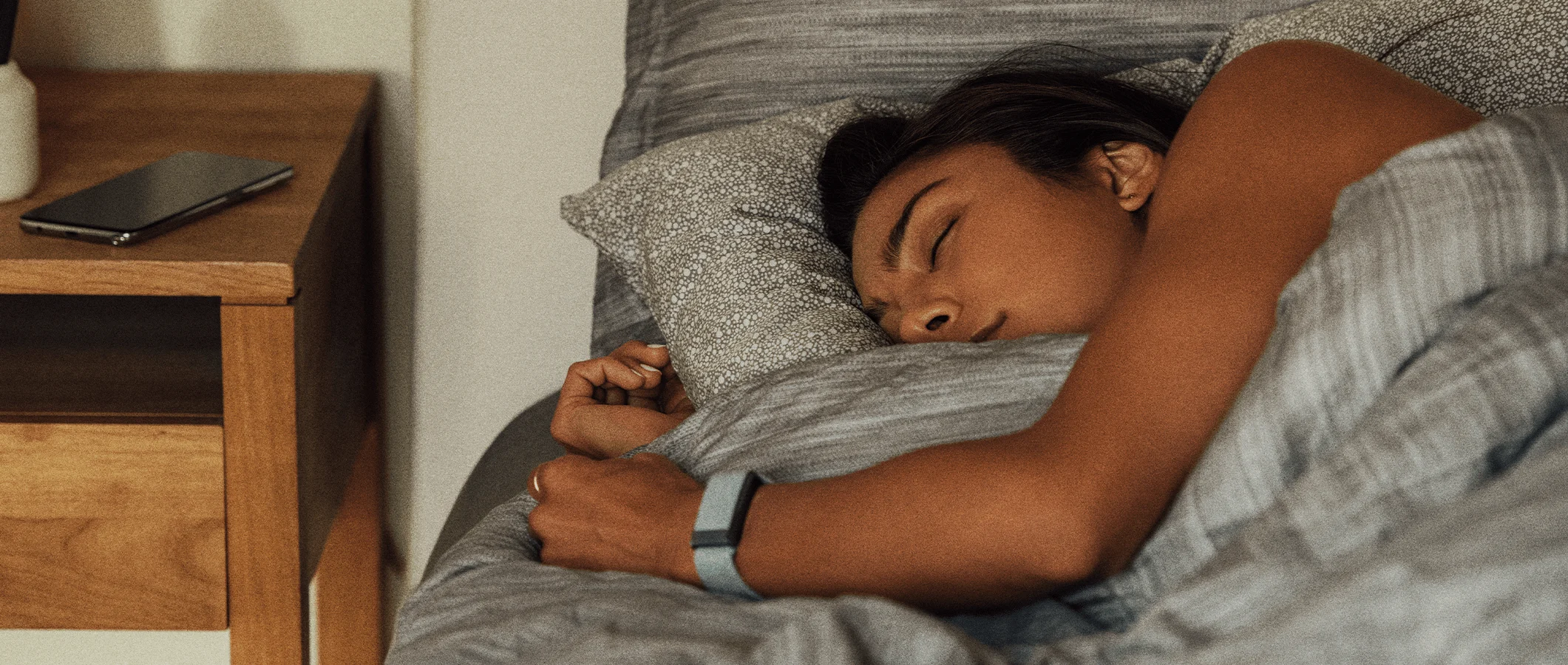Topics
- Article
- Sleep
- Recovery
The Benefits of Mouth Taping for Sleep

Sleep is an important restorative process that prepares the body to take on the challenges of the day. Getting quality sleep regularly is essential for supporting optimal mental and physical performance. Many key physiological processes that happen during sleep set your brain and body up to function properly during waking hours.
Research has linked sleep with a critical nervous system activity called neuroplasticity, in which neural networks undergo changes, including growth and reorganization. This process underlies the formation of new long-term memories. Sleep-related processing in the brain is essential for many types of cognition, including learning, focus, attention, decision-making, and problem-solving.
Sleep also supports physical health. Hormones released while the body is sleeping regulate essential processes, including cell repair, energy use, appetite, and glucose and insulin function. Cytokines, immune system proteins that manage inflammation and defend against infection, are also produced during sleep with antibodies and immune cells that strengthen the body’s defense against illness.
Inadequate sleep is associated with a wide range of health issues, including high blood pressure, cardiovascular disease, dementia, diabetes, weight gain, and mental health conditions like depression. Consistently getting less sleep than recommended is also linked to difficulty carrying out everyday activities in the office and the gym.
The amount of sleep an individual gets each night is not the only key part of the sleep equation. The quality of that sleep is just as important. Poor sleep quality drastically affects daily life, leading to impairments in cognitive function, such as trouble concentrating and retaining information, disruptions in short and long-term memory, and mood changes. Sleep marked by disruptions and restlessness is also associated with drops in productivity, lower immune function, and a higher incidence of chronic health conditions.
Experts recommend improving sleep hygiene to counteract the negative health impacts of poor sleep quality. This involves adjusting your sleep routine, such as sleeping in a cool, dark room, reducing light and device exposure before sleep, sleeping and waking at the same time each night, and practicing mindfulness or other relaxation strategies before bed.
Mouth taping is a relatively new concept in the field of sleep hygiene. In this article, discover more about the potential benefits of mouth taping for sleep.
WHAT IS MOUTH TAPING FOR SLEEP?
Mouth taping is a technique intended to improve sleep by placing porous, skin-safe tape over the mouth before bed. The goal of mouth taping is to prevent breathing through the mouth during sleep and instead encourage nasal breathing. Mouth breathing has many long-term disadvantages, including bad breath, sore throat, tooth decay, gum disease, brain fog, and dry mouth. It is also associated with several sleep disorders, including obstructive sleep apnea, snoring, and hypopnea. Mouth breathers are prone to nighttime awakening, restlessness, and chronic daytime fatigue due to less restorative sleep.
About 65% of the population breathes with an open mouth when they’re sleeping, noted James Nestor, author of Breath: The New Science of a Lost Art, on a recent WHOOP podcast. Breathing through the nose is widely considered to be more beneficial than mouth breathing. The nose contains hairlike defense structures called cilia and mucus that filter incoming air and prevents allergens and pollutants from entering the airways. The nose also moistens air before it enters the respiratory tract, reducing the chance that the lungs and other respiratory structures will become dry and inflamed. Air taken in through the nose is also warmed, enhancing absorption in the lungs and bronchial tubes.Nasal breathing also supports increased oxygen consumption. Nitric oxide is released in the nasal cavity, facilitating optimal respiration by promoting oxygen absorption and circulation throughout the body by dilating blood vessels.
Breathing through the nose has also been found to increase the resistance level in the air stream, which in turn boosts oxygen uptake by 10 to 20%. Many people see improvements in restorative sleep and decreases in sleep disturbances with nasal breathing, according to Kristen Holmes, WHOOP VP of Performance Science and Principal Scientist, who discussed the benefits with Nestor on the WHOOP podcast. In contrast to nasal breathing, mouth breathing does not filter, moisten, or warm the air taken in, contributing to less-than-ideal conditions in the respiratory tract. Additionally, breathing through the mouth reduces oxygen absorption. Overall, nasal breathing is considered to be more efficient and ideal for oxygen intake and respiratory function as a whole.
WHAT ARE THE BENEFITS FOR MOUTH TAPING FOR SLEEP?
Mouth taping blocks air entry into the mouth so that it enters through the nose instead. There are many purported benefits to mouth taping for sleep, including:
- Reduced Snoring — Preliminary research indicates that mouth taping could be a beneficial treatment strategy for improving snoring and sleep apnea severity in participants with mild obstructive sleep apnea. Participants with higher baseline symptoms were found to have more significant improvements in response to mouth taping, suggesting the viability of this technique as an intervention in sleep disorders.
- More Energy in the Morning — Mouth taping can improve restorative sleep, helping you feel more rested and promoting higher energy levels.
- Improved Sleep Quality — Mouth taping can lessen restlessness during sleep and reduce potential disruptions such as snoring or sleep apnea, leading to improved sleep quality.
- Reduced Mouth Dryness — Mouth breathing throughout the night causes the saliva that keeps the mouth moist to dry out. Mouth taping redirects airflow through the nasal passages, preventing air from contributing to mouth dryness.
- Reduced Anxiety — Breathing through the mouth often involves taking in shallow, quicker breaths, which can activate the fight-or-flight response of the sympathetic nervous system. Nasal breathing, on the other hand, tends to involve taking slower, deeper breaths, which stimulates the parasympathetic nervous system. This has a calming effect on the body and can reduce anxiety.
- Potential Asthma Improvement — Nasal breathing can help filter out allergens and irritants that can trigger asthma symptoms. While it’s theorized that mouth taping could potentially benefit individuals with asthma, current studies have concluded that mouth taping has no demonstrable impact on asthma management.
IS MOUTH TAPING FOR SLEEP SAFE?
Research on mouth taping is in the early stages and findings are limited. You should consult a licensed healthcare provider before making mouth taping a part of your sleep hygiene routine. Your provider can help you determine if mouth taping is safe for your situation. It’s important to note that the tape used in mouth taping can also cause irritation, allergic reactions, and difficulty breathing in some individuals.
WHO COULD BENEFIT FROM MOUTH TAPING FOR SLEEP
Only a select few studies have found benefits of mouth taping for sleep, and these were limited to participants with sleep apnea. Based on these findings, it’s possible that individuals with mild obstructive sleep apnea could see improvement with mouth taping. However, people interested in the benefits of nasal breathing, such as improved sleep quality and increased oxygen uptake, may consider looking into mouth breathing to help redirect airflow through the nose instead of the mouth during sleep.
TRACK SLEEP HEALTH WITH WHOOP
Want to see if mouth taping could benefit you? WHOOP provides in-depth, personalized sleep monitoring that tracks both the quantity and quality of your sleep, reporting on time spent in different sleep stages, the number of wake events and disturbances, sleep efficiency, and your respiratory rate throughout the night. With WHOOP, you can also see how sleep hygiene strategies like mouth taping affect your recovery. Log mouth taping in your WHOOP Journal and then check your Insights – all on the coaching tab – to see the exact impact it has on you.


